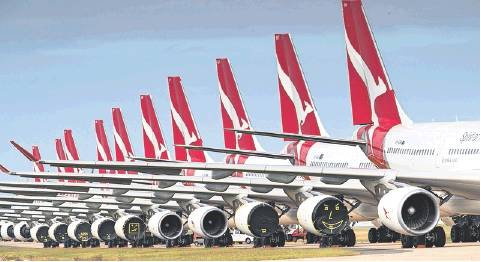Investors look to recovery stocks for pockets of value
Stockpicking
William McInnes
Value-minded investors are eyeing off stocks still suffering a COVID-19 hangover, convinced the economic recovery under way across large parts of the globe will bring them back to prepandemic levels by the end of 2022.
Energy, financial and travel stocks in particular have been hit hard, but the rollout of the vaccine and increase in economic activity has seen the most under-pressure stocks regain some momentum this year.
‘‘We believe the vaccine is the greatest source of stimulus and vaccine availability is going to meaningfully increase in the next few months,’’ American Century Investments senior portfolio manager Brent Puff said.
‘‘Clearly stocks around the world are rich by historical standards. But we’re in a situation where demand is in the very early stages of starting to gain momentum and the greatest gains are going to be in the sectors of the market most affected by COVID.’’
Mr Puff said the firm was looking at companies still trading at a discount to the rest of the market, but likely to experience a significant earnings recovery in the next 12 to 18 months.
‘‘One of the newer names in the portfolio is Booking.com,’’ he said.
‘‘Their business has been very severely impacted by COVID and we haven’t seen much of a recovery to date but as we get to the other side of COVID, we think there’s a lot of pent-up demand to travel and Booking’s business will snap back.’’
He pointed to China’s hotel market, which has experienced a rapid recovery, as evidence of the quick turnaround the travel sector could make once restrictions are eased.
Domestic fund managers are also looking at the travel market for value opportunities.
The market is trading on an adjusted price-to-earnings ratio of 22.7, higher than the average of 17.6 it has commanded over the past five years.
‘‘We have positions in Qantas and Flight Centre,’’ Credit Suisse Private Banking portfolio manager Mike Jenneke said. ‘‘These companies have very good hibernation strategies and that will see them through the present downturn. The vaccine news is positive and there’s risks obviously but when it’s safe to do so, it will recover.
‘‘Demand is pent up and we think we’ll see a pretty significant rebound in travel. These kind of stocks will be volatile but we think there is an overall opportunity there.’’
Despite the recovery of the S&P/ASX 200 Index, Qantas shares are 30 per cent below their pre-pandemic levels, while Flight Centre is sitting 60 per cent lower. Both have raised capital. Mr Jenneke said the major banks also appeared attractive at current valuations, adding he expected them to fully recover profits quickly.
‘‘Bank loan books had been derisked, there had been a tightening of loan standards prior to the pandemic and capital positions were pretty strong so that was a compelling case for us to go overweight,’’ he said.
‘‘We think there’s more to go here. Profit expectations are still below where they were pre-COVID and, given the recovery we’re seeing, we don’t see a reason they can’t recover back to those pre-COVID levels in a reasonable time frame.’’
The S&P/ASX 200 Banks Index remains just over 3 per cent below its pre-pandemic levels, despite a strong rally since November.
Mr Jenneke said Credit Suisse was also upbeat on the prospects for a recovery in the energy sector, where the oil price famously turned negative in the futures market in 2020. The S&P/ ASX 200 Energy sector remains 30 per cent below its pre-COVID-19 levels despite oil prices fully recovering.
‘‘We went overweight energy as a result of the vaccine news because the vaccine development led to a much clearer recovery in the economy and energy demand,’’ he said.
‘‘There’s also some medium-term supply constraints in the market so there is some more supply support starting to emerge.
‘‘From our point of view, it’s a pretty bombed-out sector, so we have a modest overweighting to energy.’’
